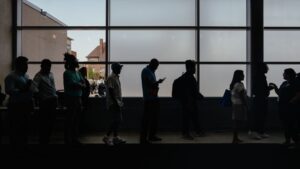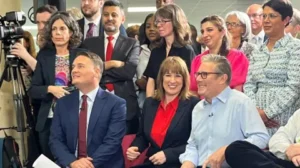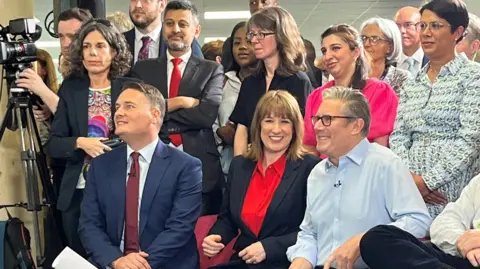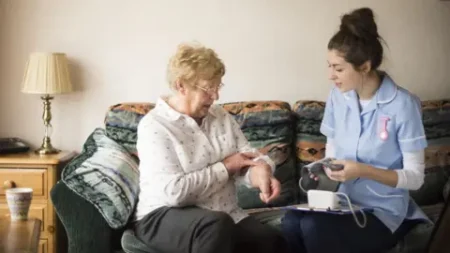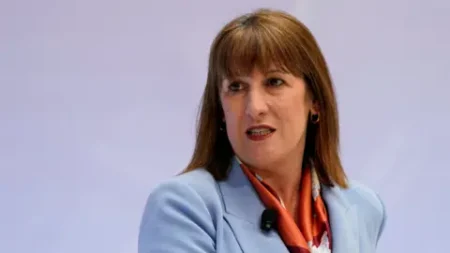Chancellor Rachel Reeves made a significant and unexpected appearance alongside Prime Minister Sir Keir Starmer shortly after an emotionally charged moment during Prime Minister’s Questions, where she was seen shedding tears in the House of Commons. This incident raised eyebrows, especially given the political context surrounding her role in the government.
The Chancellor’s outing was designed to showcase unity within the leadership as they unveiled the government’s ambitious ten-year plan for the National Health Service (NHS) at a hospital in East London. During this event, Reeves appeared noticeably cheerful and engaged as she borrowed the spotlight, embracing the Prime Minister in front of health professionals and local media. This event took place one day after a particularly fraught Prime Minister’s Questions session, which stirred public and political speculation regarding her future in the cabinet.
On the parliamentary floor, tensions rose when Sir Keir Starmer hesitated to reassure critics about Reeves’ position just moments after a tumultuous question and answer session. The financial markets responded negatively to the uncertainty, showing an immediate drop in the value of the pound and a rise in government borrowing costs. However, the situation settled after Sir Keir made clear that Reeves would remain in her role “for a very long time” and emphasized his alignment with her fiscal strategies.
In subsequent statements, the Chancellor took part in a united front, addressing the audience while downplaying the emotional upheaval she had displayed the previous day. Although her speech refrained from referencing her tears, it focused on the new initiatives being launched, highlighting the government’s commitment to bolstering health services in the community. This event featured Health Secretary Wes Streeting, reinforcing the message of collaborative leadership within the Labour Party.
During this time, Sir Keir praised Reeves for her hard work and the important financial decisions she had made, which provided stability for the NHS. When asked if he had noticed her moment of distress during PMQs, Sir Keir explained he was too preoccupied with responding to questions to fully grasp the situation unfolding next to him. He characterized PMQs as fast-paced, highlighting the frantic nature of the proceedings that often leaves little room for side conversations.
Further context emerged when Sir Keir indicated the emotional moment was tied to a “personal issue,” respectfully declining to speculate further. In an interview with Virgin Radio, he acknowledged having had an in-depth conversation with Reeves post-incident, reaffirming her resilience and strength as a leader.
Despite the attempts to maintain a solid front, speculation about Reeves’ future persisted, particularly following the Labour Party’s struggles in Parliament involving welfare reforms that led to a substantial £5 billion gap in proposed budgets. These challenges forced Reeves into a dilemma where future financial strategies could involve tax increases or spending cuts in order to comply with her guidelines on government borrowing.
While discussing Richardson’s emotional display, Shadow Chancellor Mel Stride expressed sympathy towards Reeves, emphasizing the human element in politics. Yet, he also pointed out several missteps by the government that led to the turmoil and hinted at potential tax rises in the near future due to these oversights.
In the aftermath of the emotional episode, government borrowing costs, which initially spiked due to anxieties regarding Reeves’ stability, began to stabilize as the political environment appeared to shift favorably with the Prime Minister’s strong backing of his Chancellor. Analysts indicated that this situation was somewhat unusual, suggesting that market fluctuations could inadvertently boost a politician’s standing rather than diminish it.
Overall, Rachel Reeves’ surprise appearance and her handling of a recent emotional crisis not only highlight her vulnerability as a public figure but also emphasize the complexities faced by politicians in the highly scrutinized world of government leadership. As the Labour Party navigates its future financial decisions, all eyes remain on the Chancellor’s strategies and the support she garners from her party leadership.


